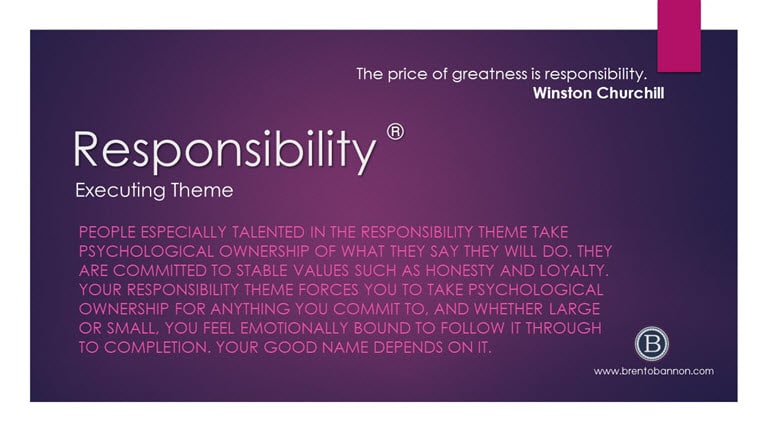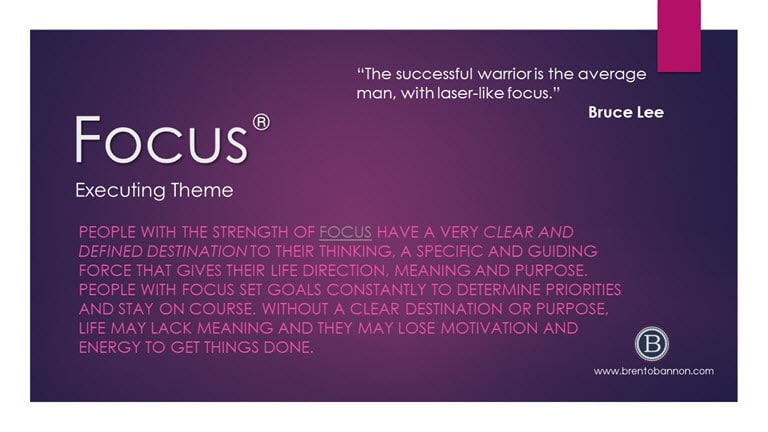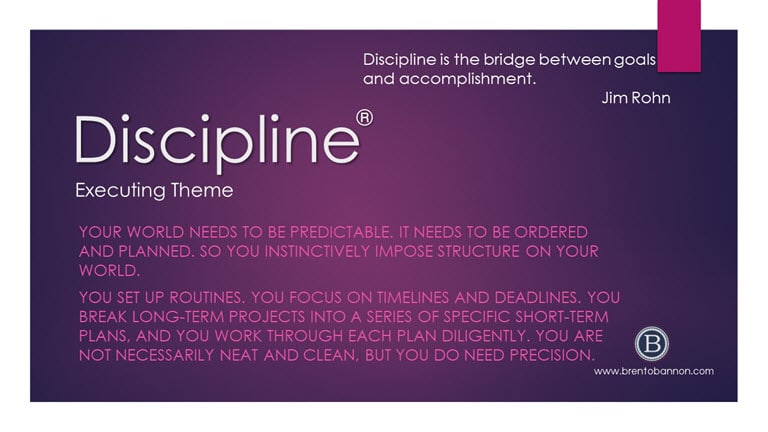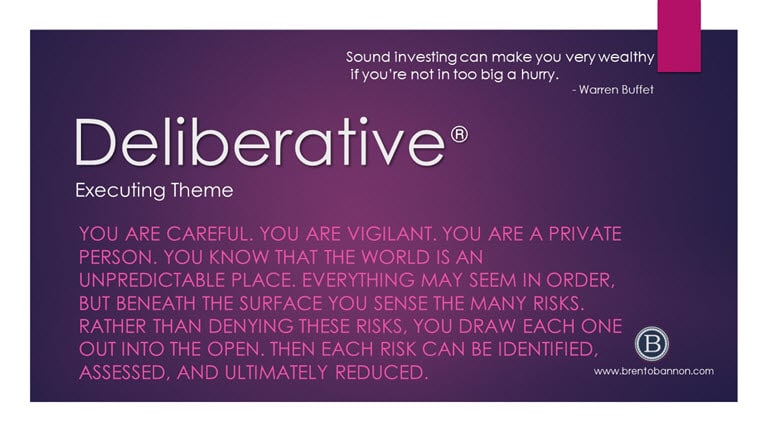
Do you love to see things through to completion? Do others see you as dependable and feel they can count on you? Are you a person who make commitments that…

Do you love to see things through to completion? Do others see you as dependable and feel they can count on you? Are you a person who make commitments that…

Focus® is my #1 talent theme. One example of Focus, for me, is that I first cultivated this strength when I started playing tennis at an early age, and I’ve…

Discipline® Why in the world would anyone over fifty start a business? Gallup surveyed entrepreneurs over age fifty who began businesses later in life and found that 32 percent started…

Are you a fairly serious person? Do you plan ahead to anticipate what might go wrong? When it comes to making decisions do you believe making the correct decision is…